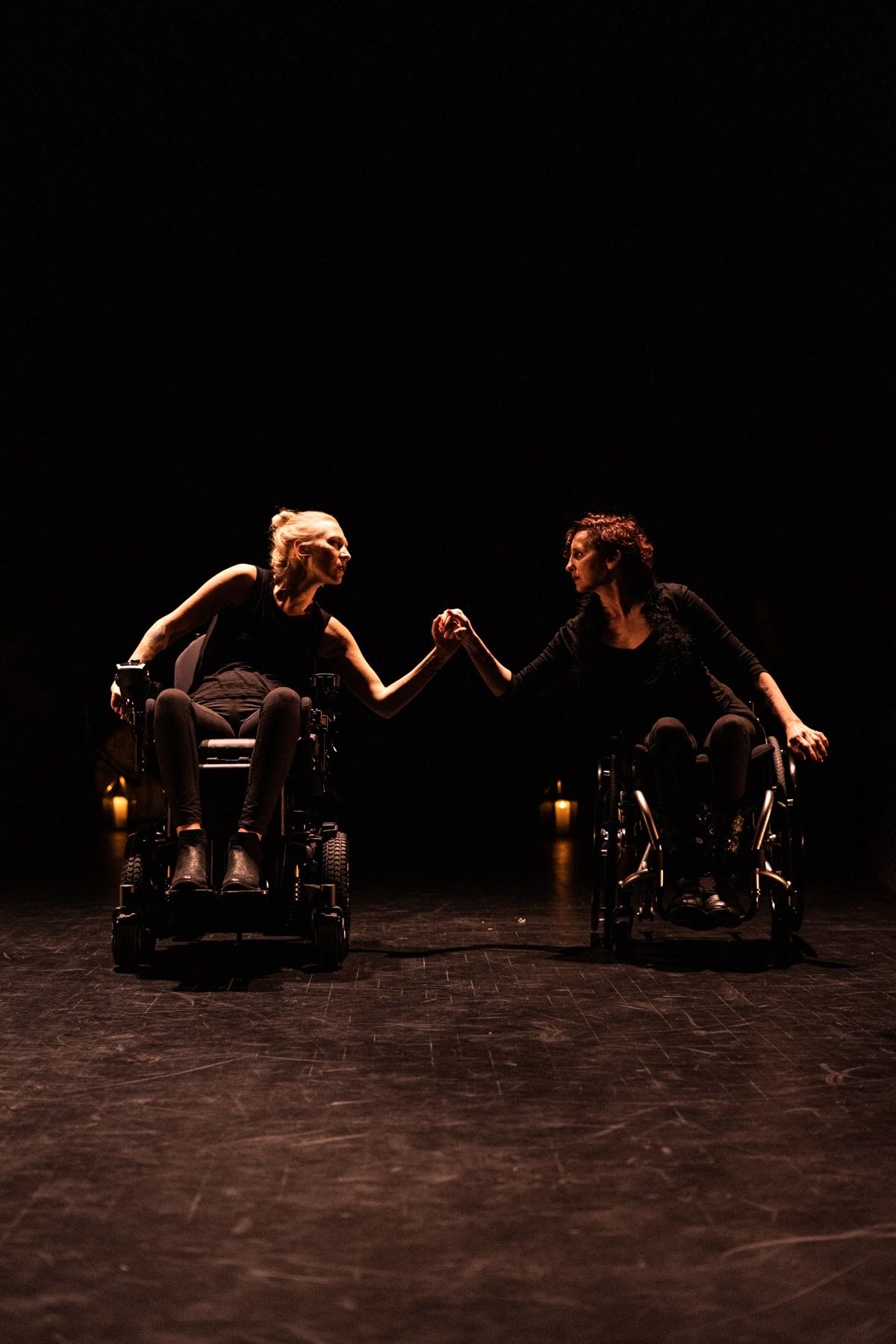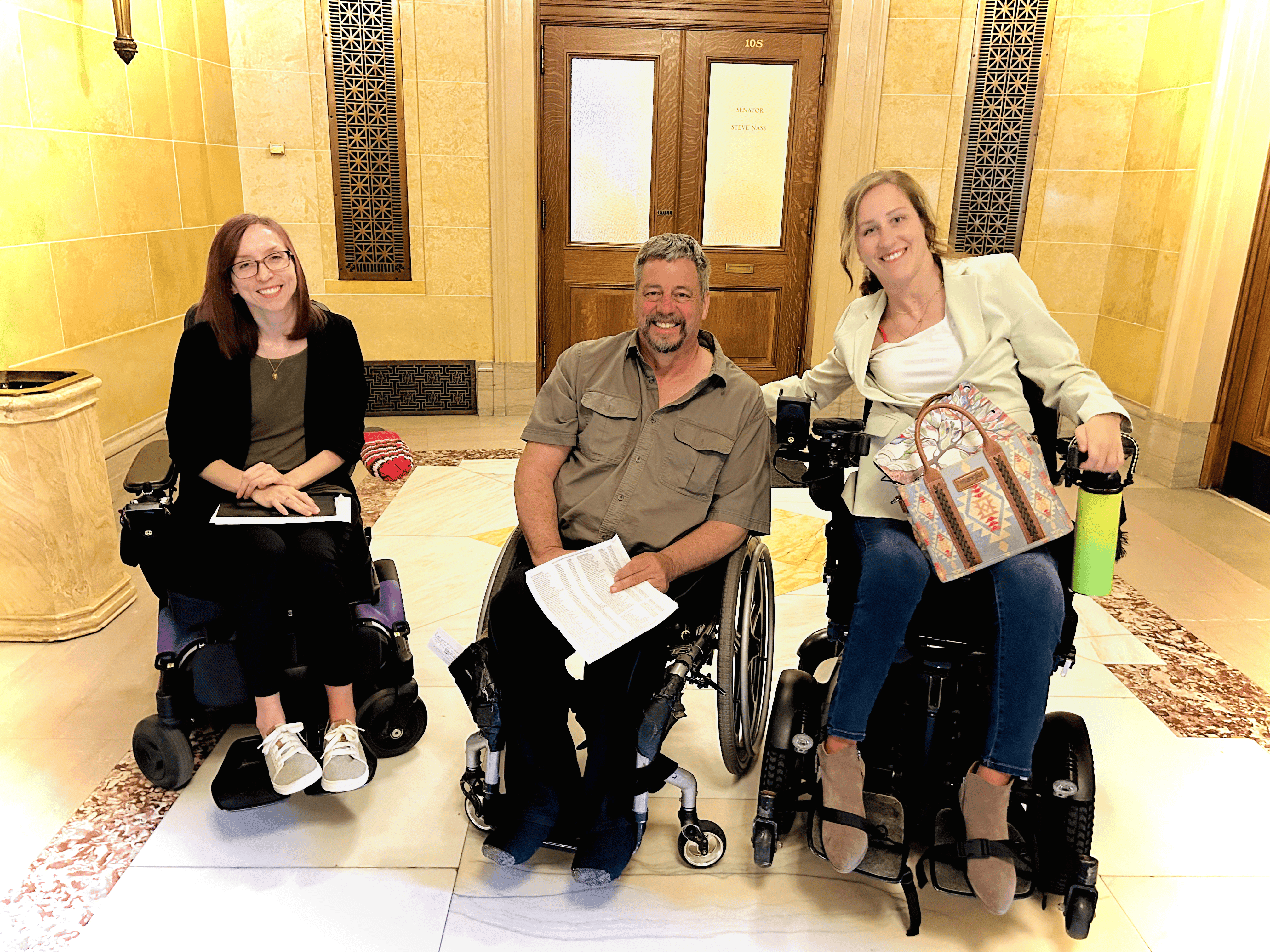
Anyone who has to rely on a caregiver knows how much of a difference it makes to have a good one. It’s a game changer. You can go from being completely depressed and hardly functioning, to content and thriving, based on whether the person who shows up for you (if they even show up) is one of the few who you not only click with, (key component) but also has the qualities that make a good caregiver. It’s rare.
When I returned from Florida in February, I started working with Avi, and she/they has been a light in my life. My saving grace. They’re not just my caregiver, they have become a cherished person in my life (and 1 of the 2 people I allow in my space these days.) Quarantine life…
We were talking recently about how our relationship is the only form of physical intimacy that either of us has in our lives right now. This exchange has been unfolding, it’s nurturing and vulnerable give-and-take nature proving to be a gift, (despite its intrinsic challenges), especially now.
It’s interesting, the slow reveal of our unique AND shared realities during this time of quarantine…this particular one made me pause in my tracks — just after I wrapped my arms around her as she transferred me from my bed into my wheelchair that morning — I sat there, head tilted to one side, with a half smile on my face, amazed and filled with a sense of joy and wonder. Hit by the beauty of a new perspective. As much as I sometimes curse that I have to have someone help me get in and out of bed, morning and night, over and over, this situation has shed light on some much-appreciated silver linings.
There is a loneliness that comes with paralysis, oddly similar to this current pandemic, and it makes me feel it for us all. A longing accompanied by this isolation. Because whether it’s our paralyzed bodies we’re stuck in, or our wheelchairs that feel like barriers between us, or the literal walls that we are forced to stay within these days, there is a disconnect, and it hurts.
There have been so many times over the last few years that I have missed the social graces that come with being able-bodied. There have been times I’ve wanted to share a seat, or inch closer, or lean into someone, to crack open that door of affection and intimacy and be able to feel it out, no words necessary. So many times I’ve felt my paralysis, my cage of a wheelchair, get in the way.
We all feel that now. With social distancing, we can’t fall back on body language as much to say the things that we want to say. We’re forced to go out on a limb with our words and say things like ‘I wish I could hug you,’ or “I miss being closer to you,’ and it’s a different kind of vulnerability when you have to voice things instead of just inching a little closer.
It still blows my mind that I can’t feel 75% of my body, and every spring there is a rebirth of that longing, an awareness that rises to the surface of how alone and trapped I sometimes feel. I feel it every season, in different ways, but for some reason spring is the most intense. It throws me, and I find myself nostalgic for the past and yearning for the future, wishing that I could have these moments of joy, pleasure and expression back in my life; these moments in your body, in the sensuousness of life that ground you, empower you, release you and ignite you.
Because just like the trees that shed in the fall and bloom in the spring, or the birds that sing again in May, we are connected to the earth’s shifts — we have an urge to bloom as well, to paint the world with the colors and songs of our body and spirit. Isn’t that part of our purpose here? I know I’m not alone in this quest to feel more, whatever that means for each of us.
I’m finding myself leaning into the loneliness this time, with a bent ear, asking it ‘what do you need? How can I make you feel sated so that the hunger pains are no longer clawing at my insides?’
We’re all too good at finding new ways to distract ourselves from the things that plague us — it’s an easy thing to do, especially in the age of streaming and social media. But how can we learn to process this loneliness so that it doesn’t eat away at us slowly?
I’ve been meditating, writing, dancing, singing, going out in nature, sighing (a lot), and talking about my pain. And, since we’re all social distancing, I’ve been asking my caregivers for hugs, which has been its own thing of beauty.
I worry that too often we sit in our feelings of longing and loneliness, scared to acknowledge or share them, almost ashamed and embarrassed by them.
The power of them basks us in a muted tone, dimming our light. It’s as if somewhere along the way we convinced ourselves that we’re unworthy of love.
Once again we underestimate ourselves. We deserve to be touched, even if we can’t feel it. We deserve to be loved, and we need it. Just as much as we need food to survive we need LOVE.
We’ve gotten so good at asking for things that we need to survive, because we’ve had to — food, water, help getting dressed, showering — ALL very humbling asks. So why should asking for love be any different?
Both requests put us in a vulnerable position, but maybe if we shift our perspective of what it means to ask, it won’t be so hard anymore. They both affect us on a cellular level, whether it’s a hug or an ice cream sandwich, there is a chemical reaction in the body.
So maybe we should remind ourselves of this basic function when we’re scared to ask for what we need. We’re not machines, just going through the motions, on autopilot, we’re more beautifully complex than that. We have the capacity to think beyond what we sometimes allow ourselves to. It makes me think of the famous speech by Charlie Chaplin‘s character in The Great Dictator:
“Don’t give yourselves to these unnatural men — machine men with machine minds and machine hearts!
You are not machines!
You are not cattle!
You are men!
You have the love of humanity in your hearts!”
When things get tough, sometimes all we can do is focus on surviving — I was there, probably for the first 2 ½ years of my injury. But there comes a time when we have to come back to what makes us feel ALIVE, because that’s where the zest of life lies; that’s when we can thrive.
During this time of pandemic, we have an opportunity to listen to our hearts and ask them, what can I do for you? What do you need? And better yet, we have a chance to positively affect someone else with our vulnerability and our bravery. Let’s give ourselves a fighting chance to feel better, to do better and to be better.
Because we have so much to do.
Join us!
P.S. What does vulnerability, acceptance, listening to our hearts, and asking for love have to do with the quest for cures? Simple. When we take stock of ourselves emotionally, and get honest with where we’re at it allows us to see the beauty in our present moment, while realizing that the limitations we face (ie our physical paralysis) are unacceptable. And part of asking for love is having the boldness to ask the research enterprise to prioritize our voice and partnership in the necessary work of finding curative interventions for spinal cord injury. That’s what U2FP is doing. And that’s why we need your voice as part of this movement.

















